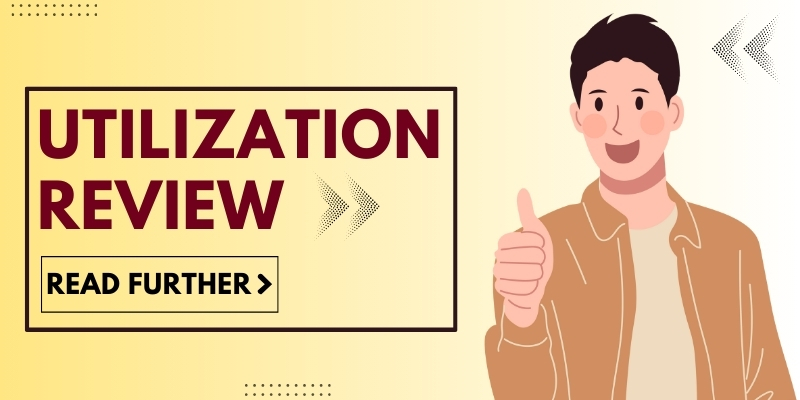Heading At the Forefront of Sustained Care: Utilization Review

Utilization reviews are the core of mental health and substance abuse rehabilitation care. These are essential for ensuring that every client/patient who visits a rehab receives the requisite level of care.
For example, while Level 1 care or Outpatient and weekly therapies could suffice for some people with mild illness; others could require intensive care – the Level 3 care. This could involve Detox and De-addiction programs, guided therapies, and prolonged stays. All of which would be taken care of by the insurance provider.
The levels of care:
Currently, insurance companies handle 8 levels of care comprising hospitalization, partial hospitalization (PHP), subacute hospitalization, 23-hour observation, supervised living, Intensive outpatient, Residential Treatment, and Outpatient (OP).
The problem of payment:
As insurance providers indulge in a game of cat and mouse, at stake are medical treatments. Processing payment for medical necessities and concurrent reviews. This could pose a double whammy for both the rehabilitation center and the client. While the patient is unable to receive adequate levels of care and therapy, the center gets drawn in an incessant cycle of paperwork and legalities.
This scenario is common to many rehabilitation centers. There is a constant struggle to balance the legal filings – verification of benefits, progress reviews and concurrent reviews, medical necessities with daily business. But it is not as if rehabilitation centers do not have an option.
Instead of struggling with mundane legalities, an alternative would be to allocate the UR to experienced hands. We have teams who have hands-on experience in the game. They are well-versed in the legalities and use tact to address the insurance problems heads-on while remaining committed to client well-being. That way, the rehabilitation center gets around with the business of healing and caring, while our specialized team takes care of the legalities.
How Utilization Review works
Utilization review can be defined as a mechanism through which a patient care plan submitted by the UR team of qualified addiction and mental health professionals is submitted to an insurance company. The insurance company then takes up the plan and reviews it.
Dealing with payers on its own is tricky business for any center. One easily gets lost in legalities. One wrong drafting/documentation could have serious ramifications. In light of the many instances wherein insurers have tried to skirt medical necessity items of care, a specialized team of experts can be helpful for ensuring that there are no insurance mishaps or missteps.

Advantages of allocating Utilization Review to a third-party
Provides higher-quality care: By assuring wide coverage to accommodate all services, it enhances the level of care. Furthermore, all modalities associated with patient responsibility, verification of benefits, billing and collection, insurance coverage denials and appeals are taken care of by our team.
Resulting in seamless transfer of services. In the long run, allocating the UR to a specialized team is ideal for both the center and the patient. While rehab carries out their job with no worries of legal implications, the client or patient profits from high levels of care and lengthier stays.
Decodes medical necessity efficiently: A skilled UR can decode medical necessity and ensure that nothing is left out in patient care. Deciphering medical necessity involves a lot of documentation. In skilled hands, the center can navigate around the insurance pitfalls and carry out all documentation and filing tasks faster.
Right from the time the client is admitted to the time of discharge, an educated, experienced, and skilled team of UR experts function as the advocate for the client. Promoting the best of client’s treatment requirements.
Concurrent coverage: Clinical presentation could be limited. However, it is detrimental if it is restrictive. In instances of substance abuse and behavioral health, there is a need to possess an in-depth understanding to assure the best possible service and treatment despite the clinical presentation.
As underlined earlier, there are eight levels of care and our team leverages their backgrounds in partial hospitalization, residential treatment, sub-acute detox, and intensive outpatient treatment, to cater in the best possible manner to the needs of your clients and your clinical staff. Through prior authorization, concurrent reviews, and peer-peer reviews, we aim to obtain insurance coverage for the complete treatment of your client at the level of care determined by your treatment team.
Progress reviews: Putting an auto pilot review for all the progress reviews, so that the channels of communication between the payer and the client are transparent. With the autopilot mode on thanks to the UR team, you are free to concentrate on client/patient care.
A final word
So would you like to bid adieu to all the insurance wrangling. Connect with us today, we will provide you with a grand tour of our offerings and set you forth on a journey that is seamless, transparent, and conducive to all parties involved.
 +1(949) 325-7994
+1(949) 325-7994

